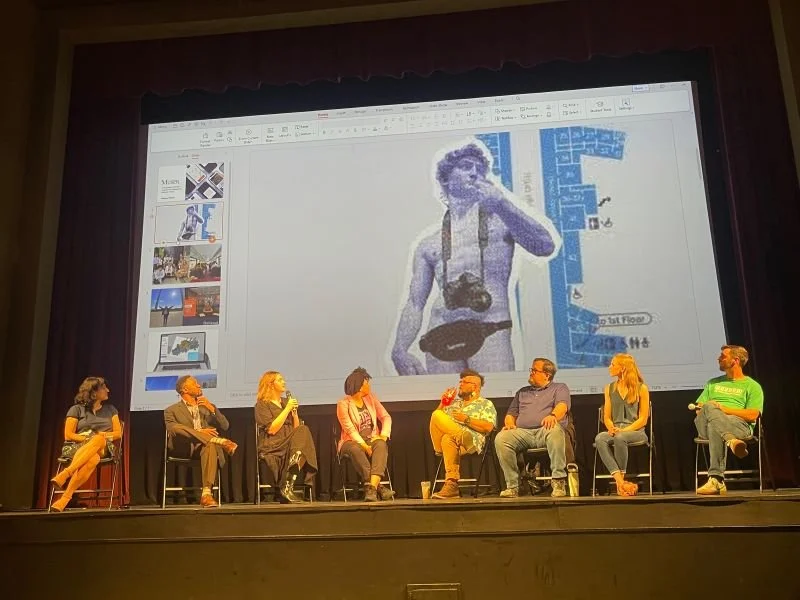On October 9, 2024, Kentucky to the World hosted the Premiere of A Pathway Forward, a documentary following Central High School Law and Government Magnet sophomores through a year of innovative instruction. Over a year later, the film’s message continues to resonate far beyond the school’s walls.
Read MoreFall has always carried a certain magic: a creative pulse that hums through Kentucky’s hills and city streets. It’s the season when the air sharpens, colors ignite, and ideas start to take shape. For Kentucky to the World (KTW), fall isn’t just a time of transition. It’s a reminder of why we do what we do. This is the season of creativity, excitement, and momentum.
Read MoreComing to Louisville was never part of the plan for Dr. Ajmal Zemmar. But then again, neither was his biggest scientific breakthrough.
Read MoreEvelyn R. Gregory is a Cinematography and Video Production educator based in Louisville, KY. She earned her undergraduate film degree from the historic Alabama A&M University and holds both a Master of Fine Arts and a Master of Science while residing and teaching in Kentucky. She describes herself as “just a kid from Cleveland with a passion for storytelling.”
Read MoreAppalachia is not a monolith.
It’s a sentiment shared time and time again, from news organizations centered on the Black experience in West Virginia to works of fiction based in the reality of growing up Indigenous in North Carolina. Over 20% of the Appalachian population is nonwhite - including Black, Hispanic, and Indigenous folks, as well as many other races and ethnicities - and the region has become increasingly diverse since 2010. And yet, mainstream representations of the region almost always look the same: white.
Read MoreThe fall after I turned 18, I moved from my hometown in Pikeville to the town of Bowling Green for college. The drive was less than five hours, an easy trip down the Cumberland Parkway anytime I needed a weekend at home. But despite being within state lines, and a mere one county outside what the ARC designates as the Appalachian region, something about Bowling Green felt like I had dropped onto a different planet.
Read More“Paddle faster, I hear banjos.”
In the early 2010s, this phrase felt like it was on a t-shirt in every store I walked into. Usually, it was accompanied by stick figures or silhouettes of people in a canoe. Other times the shirt inexplicably featured popular TV characters like Family Guy’s Brian and Stewie. Regardless, the phrase showed up enough that 15-year-old me took notice. And despite never having seen the film these shirts referenced, I could sense that they were mocking someone - someone who kind of felt like me.
Read MoreCivic Imagination (CI) Incubator is a partnership between Western Kentucky University's (WKU) Potter College of Arts and Letters, its Innovation Campus and the University of Southern California (USC). “The program originated out of media fandom,” says Sam Ford, the Executive Director of AccelerateKY and Board Chair of Kentucky to the World. “How do people react to pop culture stories, social issues, civic issues, politics? They were using fictional worlds to tell stories in Appalachia. … This is a natural partnership. We’re matching content with an outlet.”
Read MoreThe one I noticed the most by far is a trope I’ve come to call Degraded - the idea that Appalachians are primitive, degenerate, and destitute. Sometimes, these images are meant to be funny; others, deadly serious. In all cases, Appalachians are positioned as a society wholly separate from the rest of the world - a group that is other.
Read MoreIt became clear to me at a young age that stories were how we learned about and connected with each other. They were a source of joy, remembrance, wisdom, and humor. But as I grew up, I realized that stories can have a dark side - especially when they’re used against you.
Read More










